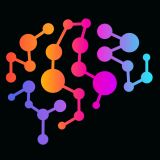In this article:
What is a Neurobiology Degree?
A neurobiology degree focuses on studying the nervous system, including the brain, spinal cord, and nerves. Students learn how the brain controls behaviors, emotions, thoughts, and actions, and how it responds to diseases or injuries. The degree combines biology and neuroscience to understand how the brain works at both a cellular and system level.
In a neurobiology program, students study topics like brain anatomy, how neurons communicate, how memories are formed, and what happens when things go wrong in the brain (such as in diseases like Alzheimer’s or Parkinson’s). They also learn research methods and techniques for studying the brain and nervous system, often through laboratory work or field studies.
Program Options
Program options for a neurobiology degree can vary depending on the institution offering the program and the specific focus areas within neurobiology. Here are some common program options you might encounter:
- Bachelor’s Degree in Neurobiology (4 years): This undergraduate program provides a strong foundation in biology, neuroscience, and physiology. Graduates can work in entry-level research or healthcare roles, or continue to a master’s or Ph.D. program for more advanced opportunities.
- Master’s Degree in Neurobiology (1-2 years): A graduate program that allows students to specialize in areas like brain diseases, neurogenetics, or neuropharmacology. It prepares students for advanced research positions or careers in neuroscience labs, biotech companies, or healthcare.
- Ph.D. in Neurobiology (3-6 years): A doctoral program for those who want to conduct advanced research and contribute to the scientific understanding of the brain and nervous system. Graduates often pursue careers in academia, research institutions, or lead roles in neuroscience-based healthcare companies.
Skills You’ll Learn
In a neurobiology degree program, students develop a diverse set of skills that are essential for success in the field of neuroscience and related disciplines. Here are some of the key skills you can expect to acquire:
- Research Skills: Students learn how to design experiments, collect data, and analyze research findings. This includes using laboratory equipment, brain imaging techniques, and statistical software to conduct studies on brain function and neurological disorders.
- Problem-Solving and Critical Thinking: Students develop the ability to think critically about complex biological systems and neurological diseases. They learn to analyze problems, formulate hypotheses, and draw conclusions based on scientific evidence.
- Biology and Physiology Knowledge: Students gain a deep understanding of how the brain and nervous system work, including cellular processes, neural signaling, and the impacts of brain injuries or diseases.
- Communication Skills: Students learn how to communicate their findings effectively, whether it’s through writing research papers, presenting findings to peers, or explaining complex topics to non-experts.
- Technical and Laboratory Skills: Hands-on experience in labs helps students become proficient in techniques like microscopy, electrophysiology, and genetic analysis, which are commonly used to study the nervous system and brain function.
- Data Analysis and Statistics: Neurobiology students learn how to analyze large sets of data, using statistical methods and software to interpret research results and identify trends or patterns in neurological studies.
What Can You Do with a Neurobiology Degree?
A neurobiology degree opens up a variety of career options in research, healthcare, and biotechnology. Here are some potential career paths:
- Neurobiologist: Neurobiologists study the brain and nervous system, conducting research to understand brain function, behavior, and neurological diseases. They work in research labs, universities, or healthcare settings to explore how the brain works and find treatments for brain-related conditions.
- Neuroscientist: Neuroscientists study the structure and function of the nervous system, using techniques like brain imaging or electrophysiology. They may focus on specific areas such as cognitive neuroscience, neurogenetics, or neuropharmacology, often working in academic research or medical institutions.
- Neuropsychologist: Clinical neuropsychologists assess and diagnose patients with brain injuries, neurological disorders, or cognitive impairments. They use their understanding of neurobiology to help patients recover or adapt to changes in brain function.
- Clinical Research Coordinator: Clinical research coordinators manage and coordinate clinical trials and research studies involving human subjects, including those investigating new treatments or therapies for neurological disorders. They recruit study participants, collect and analyze data, ensure compliance with regulatory requirements, and communicate with investigators, sponsors, and regulatory agencies.
- Pharmaceutical Scientist: Neurobiology graduates can work in pharmaceutical companies or biotechnology firms as research scientists involved in drug discovery and development. They conduct preclinical research to identify new drug targets, screen potential drug candidates, and evaluate the efficacy and safety of experimental drugs for treating neurological disorders or psychiatric conditions.
- Neurologist or Neurosurgeon: Some individuals with a neurobiology degree go on to medical school to become neurologists or neurosurgeons. Neurologists diagnose and treat disorders of the nervous system, such as epilepsy, stroke, multiple sclerosis, Alzheimer’s disease, and Parkinson’s disease, while neurosurgeons perform surgical procedures to treat neurological conditions, such as brain tumors, spinal cord injuries, or epilepsy surgery.

